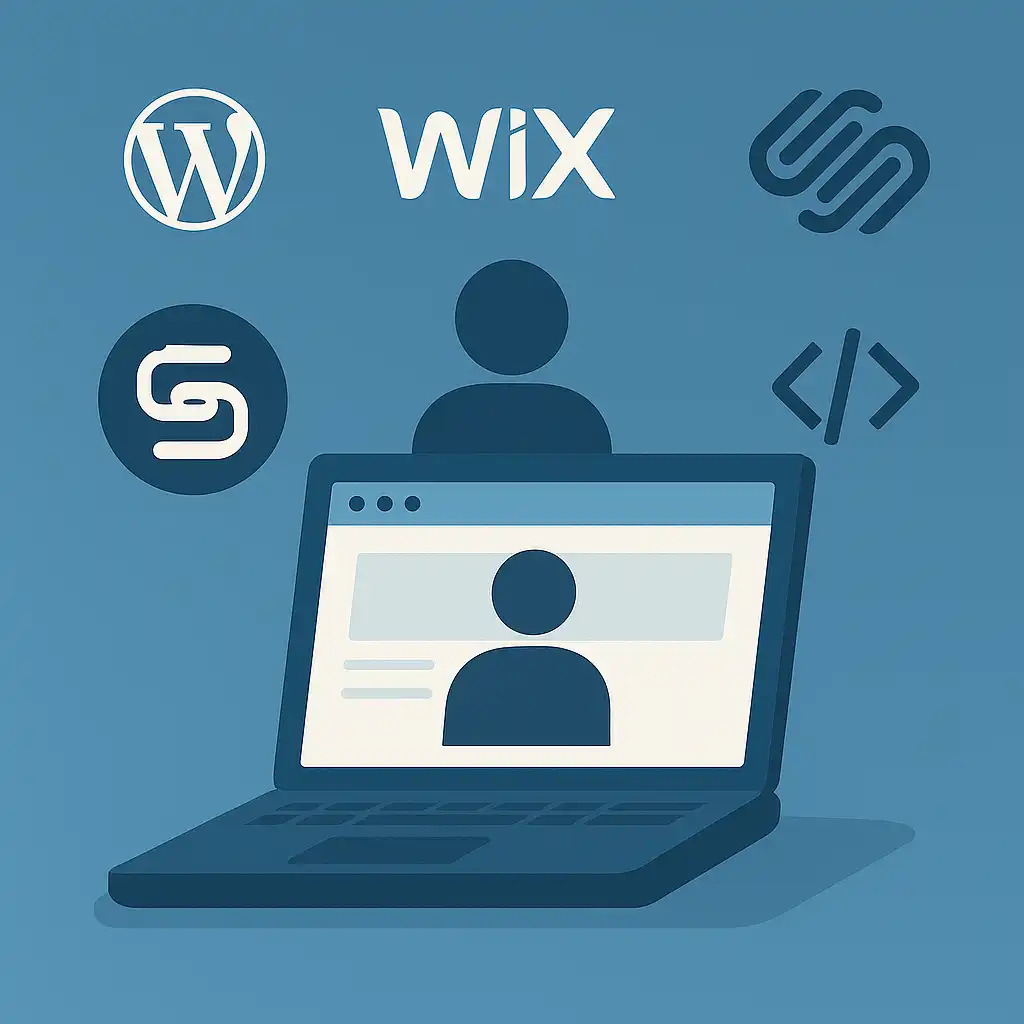
Your website is often the first interaction potential customers have with your business. In fact, 75% of consumers judge a company's credibility based on their website design. This comprehensive guide will walk you through everything you need to know to create a website that not only looks professional but actually drives business growth.
Planning Your Website Strategy
Before diving into design and development, successful websites start with strategic planning. This foundation ensures your website serves your business goals, not just looks pretty.
Define Your Goals
Identify what you want your website to achieve: generate leads, sell products, provide information, or build brand awareness.
Research Your Audience
Understand who your customers are, what they need, and how they search for businesses like yours online.
Analyze Competitors
Study successful competitors' websites to identify best practices and opportunities to differentiate yourself.
Plan Your Content
Map out your site structure, key pages, and the content needed to engage visitors and drive conversions.
Choose Your Platform
Select the right website solution based on your budget, technical skills, and business requirements.
Need Help With Planning?
Our website development process includes a comprehensive discovery phase where we help you define goals, research your audience, and create a strategic roadmap for success.
See Our ProcessEssential Pages Every Small Business Needs
While every business is unique, certain pages are fundamental to any successful small business website. Here's what you absolutely need:
Homepage
First impression, overview of your business
- Clear value proposition
- Navigation menu
- Call-to-action buttons
- Trust indicators
About Us
Build trust and connect with visitors
- Your story
- Team photos
- Mission/values
- Awards/certifications
Services/Products
Showcase what you offer
- Clear descriptions
- Benefits
- Pricing info
- High-quality images
Contact
Make it easy to reach you
- Contact form
- Phone number
- Physical address
- Business hours
Choosing the Right Platform
One of the most critical decisions you'll make is choosing how to build your website. Before you decide, it's important to understand what hosting is and how it impacts your site (learn more in our complete guide to website hosting). Let's compare the main options:
Website Platform Comparison for Small Businesses
| Platform | Best For | Cost | Pros | Cons |
|---|---|---|---|---|
| DIY Builders | Hobby sites | $15-50/mo | Easy to use | Limited growth |
| WordPress | Growing businesses | $20-100/mo | Flexible | Requires maintenance |
| Custom Development | Serious businesses | $3,000-10,000+ | Fully customized | Higher upfront cost |
| E-commerce Platforms | Online stores | $30-300/mo | Built for selling | Transaction fees |
Let Us Build Your Perfect Website
Skip the complexity of choosing platforms and building it yourself. Our custom website development services deliver professional, high-performance websites tailored to your business needs.
Design Best Practices
Good design isn't about personal preference—it's about creating an experience that guides visitors toward your business goals. Follow these proven principles:
Visual Hierarchy
Guide eyes naturally from most to least important elements using size, color, and spacing
White Space
Give content room to breathe. Cluttered sites overwhelm visitors and hurt conversions
Color Psychology
Use colors strategically: blue for trust, green for growth, orange for action
Typography
Stick to 2-3 fonts maximum. Ensure text is large enough to read easily on all devices
Content That Converts
Your website's content is what turns visitors into customers. Here's how to write copy that sells:
The AIDA Framework
Attention
Grab attention with a compelling headline that addresses their problem or desire
Interest
Build interest by explaining how you solve their problem better than alternatives
Desire
Create desire by painting a picture of their life after using your product/service
Action
Tell them exactly what to do next with clear, compelling calls-to-action
SEO Fundamentals
A beautiful website is worthless if no one can find it. Here are the SEO basics every small business needs (for a more in-depth guide, read our complete SEO guide):
SEO Checklist
Measuring Success
You can't improve what you don't measure. Here are the key metrics every small business should track:
Traffic Sources
Where visitors come from (organic, direct, social, paid)
Conversion Rate
Percentage of visitors who take desired action
Bounce Rate
Visitors who leave without interacting
User Flow
Path visitors take through your site
Common Pitfalls to Avoid
Information Overload
Trying to say everything at once. Focus on one clear message per page.
Weak Calls-to-Action
Using generic "Click Here" instead of specific action-oriented text.
Ignoring Mobile Users
Not testing on real mobile devices. Over 60% of users are on mobile.
Set It and Forget It
Launching without a plan for updates, maintenance, and improvements.
DIY Without Experience
Spending months learning web development instead of focusing on your business.
Avoid These Pitfalls with Professional Help
Don't let common mistakes derail your online success. Our experienced team has built hundreds of successful websites and knows exactly how to avoid these pitfalls.
- Clear, conversion-focused messaging and design
- Mobile-first development approach
- Comprehensive testing across all devices
- Ongoing support and maintenance plans
- Expert guidance throughout the entire process
Your Next Steps
Creating a successful small business website doesn't happen overnight, but with the right approach, you can build a powerful asset that drives growth for years to come.

